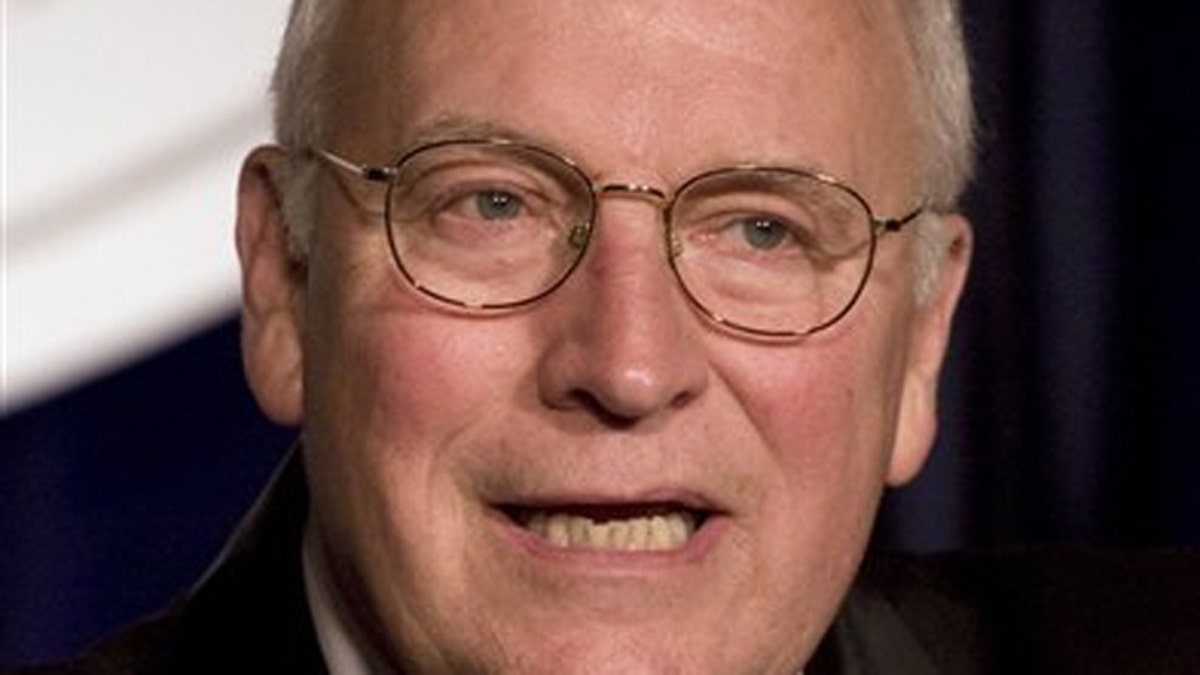
In this Oct. 21, 2009, file photo, former Vice President Dick Cheney speaks at the Center for Security Policy dinner at Union Station in Washington. (AP)
Former Vice President Dick Cheney tipped his hat to President Obama for authorizing the military operation that led to the killing of Usama bin Laden last weekend, but he lamented the end of controversial Bush-era interrogations that many conservatives believe contributed to America's greatest counterterrorism success.
In an interview with "Fox News Sunday" set to air Sunday, Cheney offered the president praise for sending Navy SEALs on a risky helicopter raid to bin Laden's compound in Pakistan.
"Well, I think you've got to give him a lot of credit for making the decision to have the SEAL Team 6 conduct the raid that got bin Laden," Cheney said. "It's no question that was his responsibility and I think he handled it well."
But Cheney fanned the flames of a renewed debate over whether the so-called "enhanced interrogation techniques" used by the Bush-era CIA -- including sleep deprivation and the simulated drowning technique known as waterboarding -- were successful and lawful.
"I am still concerned about the fact that, I think a lot of the techniques that we had used to keep the country safe for more than seven years are no longer available," he said. "That they've been sort of taken off the table, if you will."
Khalid Sheikh Mohammed, the architect of the Sept. 11 terrorist attacks, was interrogated with the "enhanced interrogation techniques" when he was captured in 2003. Months after being waterboarded, he acknowledged knowing one of Al Qaeda's most important couriers but denied that he was of any importance.
Years later, information gleaned from other terror suspects held at the Guantanamo Bay military prison and led to the identification of the courier, who unwittingly led the CIA to bin Laden's hideout after one of his phone calls was intercepted last year.
When President Obama assumed office in 2009, he banned the use of waterboarding, which he labeled as torture, and other harsh interrogation techniques, and he shuttered the CIA's secret prison system.
Critics of the Bush-era anti-terror policies have suggested that the harsh interrogations were not essential to tracking bin Laden and that the information could have been obtained by more humane means.
But Cheney and other supporters have accused the president of abandoning a strategy that had worked.




